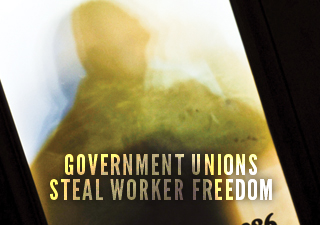Media

Union Poured Member Dues into Defeating Liquor Privatization
They’re a familiar sight in the state Capitol, wearing mustard-colored T-shirts emblazoned with their union’s logo.
Now the Pittsburgh Post-Gazette has reported on how United Food and Commercial Workers 1776, the main union representing state liquor store workers, reimbursed its members so they could flock to Harrisburg and lobby House legislators against privatizing Pennsylvania’s outdated liquor system.
In fact, UFCW 1776 has spent the last two years pouring its members’ dues into “PLCB Campaign” efforts. Here’s a closer look at where the money went, drawn from the annual “LM-2” financial report large unions are required to file with the U.S. Department of Labor:
- In 2011, the union spent nearly $315,000 on two communications firms for consulting services. In 2012, the firms received another $294,000.
- The union also spent nearly $116,000 in 2011-12 on sub-contractors and other individuals to work on anti-privatization efforts. One person received nearly $36,000 in 2011 to work on the “PLCB Campaign.”
- UFCW 1776 spent $8,000 on a video called “Buyer’s Remorse in the State of Washington,” which ominously catalogues higher prices, more shoplifting and “crime never seen before in state liquor stores,” as a result of Washington’s decision to privatize liquor sales. In 2010, UFCW 1776 even sent $30,000 of its Pennsylvania members’ dues money to a union-backed Seattle group to defeat privatization in Washington.
UFCW 1776 reported spending $511,000 from members dues on political activity and lobbying last year, but the PLCB campaign wasn’t included in the lobbying total but was considered part of “Representational Activities”.
Meanwhile, UFCW 1776 lost nearly 1,000 members between 2011 and 2012. And while the union’s motto is a “voice for working America,” president Wendell Young IV pulls in more than $280,000 a year, while the average liquor store clerk earns a salary of $31,000.
Grocery stores, beer distributors and other wine and spirits retailers under a new private system of alcohol sales will need and hire workers currently working in state liquor stores. In the end, it’s UFCW’s union leaders who stand to lose the most with reform.